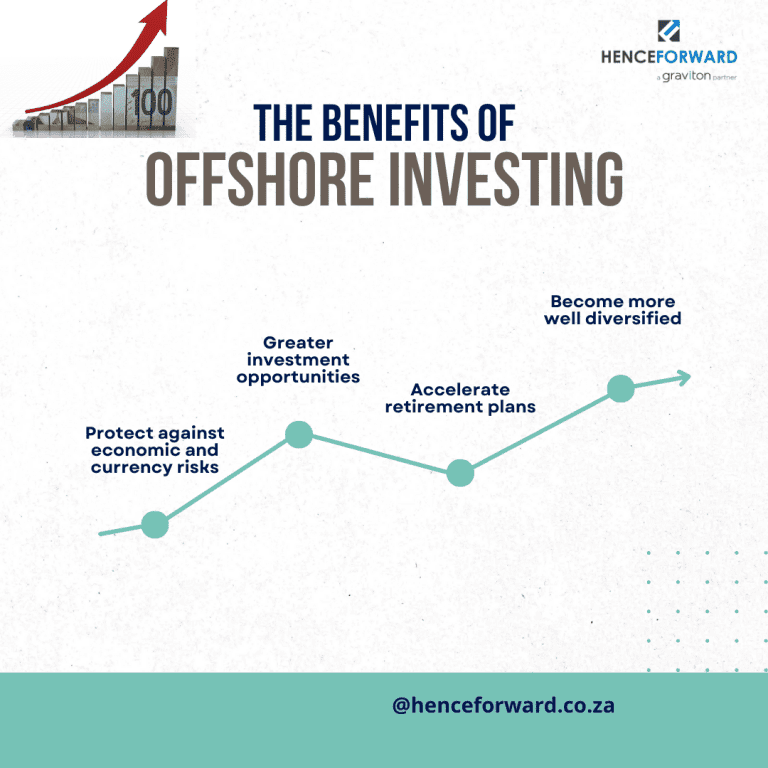Checking out Just How Investing Off Shore Works: A Comprehensive Overview
Investing offshore presents a complex landscape of opportunities and obstacles. Understanding the various sorts of offshore accounts is important for any individual considering this route. The benefits, consisting of boosted privacy and property defense, are significant. Lawful and tax obligation effects warrant careful focus. As investors seek to maximize their portfolios, the actions to develop a sensible overseas investment technique come to be necessary. What are the crucial elements that one must navigate to do well in this venture?
Understanding Offshore Accounts and Their Kinds
What drives individuals and services to contemplate overseas accounts? The attraction of monetary privacy, asset defense, and prospective tax benefits usually draws in the focus of those seeking to handle their wide range much more strategically. Offshore accounts, commonly established in international territories, come in different types. Individual accounts satisfy specific requirements, offering services like financial savings, investment, or retired life planning. Service accounts, on the various other hand, serve business seeking to assist in international purchases, boost personal privacy, or maximize tax obligation obligations. Trust accounts provide an additional layer of defense, allowing people to guard their possessions for future beneficiaries. Each kind of offshore account provides special attributes, often affected by the regulative setting of the host nation. Recognizing these differences is important for businesses and individuals, as the choice of account kind can significantly impact their economic strategies and compliance with worldwide regulations.
Advantages of Offshore Investing
While numerous financiers seek opportunities to diversify their profiles, offshore investing presents distinct advantages that can improve economic development and security. One noteworthy advantage is the potential for asset defense. Offshore accounts can protect investments from political instability or economic slumps in the financier's home nation. Additionally, offshore investments often offer accessibility to international markets, enabling financiers to use arising economic situations and industries that might not be readily available domestically.Another considerable advantage is tax obligation performance. Lots of overseas territories provide positive tax regimes, which can reduce tax obligation obligations and improve overall returns. Additionally, offshore investing can improve privacy, as particular territories apply stringent confidentiality laws.Lastly, overseas accounts can promote wide range administration approaches by giving a wider variety of investment alternatives, including different possessions such as realty and products. Collectively, these benefits make overseas spending an appealing option for those wanting to enhance their monetary profiles.

Regulative and legal Factors to consider
Guiding with the governing and lawful landscape of offshore investing requires cautious attention and understanding. Investing Off Shore. Financiers must browse a complicated web of regulations that vary significantly from one jurisdiction to another. Compliance with neighborhood guidelines is crucial; failing to do so can result in serious fines, consisting of penalties and jail time. In addition, understanding the legal structures regulating foreign investments is vital for guaranteeing the security of possessions and preserving functional legitimacy.Key factors to consider include understanding the regulative requirements for developing offshore entities, such as depends on or companies, and adhering to anti-money laundering (AML) and know-your-customer (KYC) policies. Investors must also understand reporting obligations in their home country, as numerous countries need disclosure of offshore holdings. Involving with legal experts experienced in overseas investment can give vital support, helping investors to mitigate risks and safe compliance with relevant legislations and guidelines while maximizing their investment possibility

Tax Obligation Effects of Offshore Investments
Recognizing the lawful and regulatory factors to consider of overseas investing normally results in an evaluation of the tax effects linked with these investments. Offshore financial investments can offer considerable tax obligation benefits, consisting of lowered tax obligation prices and the possibility for tax obligation deferment. Financiers must browse intricate tax obligation laws in their home nations, as numerous territories require taxpayers to report international earnings and assets.For U.S. people, the Foreign Account Tax Obligation Compliance Act (FATCA) mandates the coverage of overseas accounts, while other countries have comparable needs. Failing to abide can result in severe penalties. In Recommended Site addition, particular overseas funds might undergo distinct tax treatments, such as Passive Foreign Investment Firm (PFIC) regulations, complicating financial investment strategies.Investors need to take into consideration getting in touch with tax specialists to comprehend effects certain to their scenarios and assurance compliance with both residential and worldwide tax laws, inevitably making the most of the advantages of their overseas investments while minimizing threats.
Steps to Start With Offshore Investing
Several financiers looking for to expand their profiles transform to overseas investing as a viable choice. To start, one must perform extensive research study on potential overseas jurisdictions, considering factors such as regulative atmosphere, tax, and financial investment chances. Investing Off Shore. After selecting a suitable place, investors ought to establish an overseas account, which usually needs documentation confirming identification and resource of funds.Next, financiers commonly involve with a financial advisor or an overseas financial investment company aware of regional legislations and market dynamics. This partnership can help in crafting a customized financial investment technique that straightens with individual objectives and take the chance of tolerance.Once the approach remains in area, financiers can continue to choose details properties or funds for investment, guaranteeing they review performance and runs the risk of on a regular basis. Preserving conformity with both local and home country guidelines is important for effective offshore investing, needing recurring diligence and potentially regular assessments with legal experts.

Regularly Asked Inquiries
Just how Do I Pick the Right Offshore Territory?
Choosing the right overseas jurisdiction includes assessing elements such as regulatory atmosphere, tax benefits, political security, and convenience of working. Investigating each option extensively assures enlightened decisions that align with specific investment goals and take the chance of tolerance.
What Sorts Of Possessions Can I Hold Offshore?

Exist Threats Related To Offshore Investing?
The dangers related to overseas investing consist of lawful complexities, regulatory changes, currency variations, and prospective political instability. Investors should thoroughly assess these aspects to reduce dangers and guarantee conformity with global regulations and regulations.
Just How Can I Accessibility My Offshore Funds?
To access overseas funds, people typically need to contact their banks, give needed recognition and paperwork, and follow recognized methods for fund transfers, ensuring conformity with both local and international regulations governing offshore investments.
What Are Common Mistaken Beliefs About Offshore Accounts?
Typical mistaken beliefs regarding overseas accounts consist of ideas that they are solely for tax evasion, lack of regulation, or available to the well-off. Actually, they can be genuine financial tools for diverse people. Additionally, overseas investments often supply access to international markets, permitting financiers to touch right into emerging economic situations and industries that may not be offered domestically.Another significant advantage is tax efficiency. Offshore investing can boost privacy, as certain jurisdictions implement rigorous confidentiality laws.Lastly, overseas accounts can help with wide range monitoring approaches by supplying a broader array of investment alternatives, including different possessions such as genuine estate and commodities. Recognizing the governing and legal considerations of overseas investing naturally check here leads to an examination of the tax implications connected with these investments. Offshore investments can use significant tax obligation benefits, including read the full info here reduced tax rates and the potential for tax deferment. After picking an appropriate location, investors should establish an overseas account, which normally requires paperwork showing identification and source of funds.Next, investors often involve with a monetary consultant or an offshore financial investment firm acquainted with local laws and market dynamics.